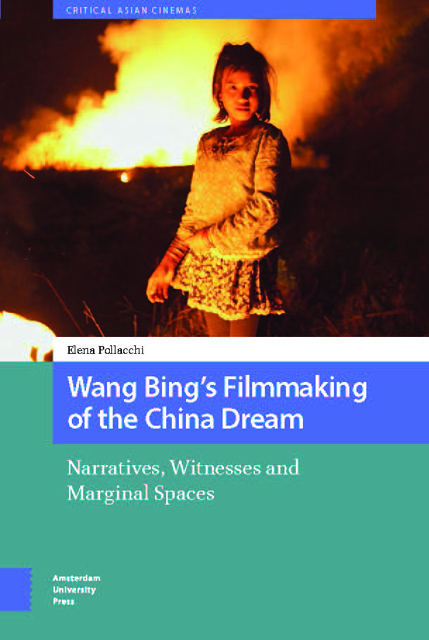Book contents
- Frontmatter
- Dedication
- Table of Contents
- Acknowledgements
- Editorial Note
- Foreword
- Introduction
- 1 Wang Bing’s Cinematic Journey: A Counter-Narrative of the China Dream
- 2 History in the Making: The Debut Epic Tiexi qu: West of the Tracks
- 3 Spaces of Labour: Three Sisters, ’Til Madness Do Us Part, Bitter Money
- 4 Spaces of History and Memory: The Works on the Anti-Rightist Campaign
- 5 Collective Spaces – Individual Narratives
- 6 Concluding Remarks: Spaces of Exhibition and Spaces of Human Practice
- Filmography
- Bibliography
- Index
6 - Concluding Remarks: Spaces of Exhibition and Spaces of Human Practice
Published online by Cambridge University Press: 12 January 2023
- Frontmatter
- Dedication
- Table of Contents
- Acknowledgements
- Editorial Note
- Foreword
- Introduction
- 1 Wang Bing’s Cinematic Journey: A Counter-Narrative of the China Dream
- 2 History in the Making: The Debut Epic Tiexi qu: West of the Tracks
- 3 Spaces of Labour: Three Sisters, ’Til Madness Do Us Part, Bitter Money
- 4 Spaces of History and Memory: The Works on the Anti-Rightist Campaign
- 5 Collective Spaces – Individual Narratives
- 6 Concluding Remarks: Spaces of Exhibition and Spaces of Human Practice
- Filmography
- Bibliography
- Index
Summary
Abstract
This chapter approaches Wang’s work from the perspective of exhibition spaces. It looks at how his career has evolved and partly transformed certain festival exhibition practices. It also discusses the virtuous circuit of Wang’s regular presence across film festivals and art exhibition spaces. Film festivals have served the essential function of providing a prestigious platform from which his work could first travel at a time in which their domestic visibility is not possible and theatrical release of art-house films or documentary films is limited in Europe like elsewhere. This concluding chapter also introduces the different modes of meaning-making of works exhibited at film festivals and art galleries.
Keywords: Documentary cinema, China, Exhibition spaces, Exhibition practices, Film festivals, Wang Bing
This chapter offers some concluding remarks on the distinctive position that Wang Bing has acquired on the international scene and across different exhibition spaces, namely, film festivals, art galleries, and museums. In his career, Wang Bing has defined his profile by affirming the role of the documentary filmmaker as that of an auteur, as I have argued throughout this book. During the last two decades, not only has he shaped his own aesthetics, but his activities have provoked, challenged, and changed the patterns of the viewing experience across film festivals and art exhibition spaces. With his diverse output – documentaries of long duration, video installations, and photographic series – presented across the film festival and art exhibition circuits, he has contributed to breaking through the conventions of theatrical exhibitions and demonstrated how increasingly intertwined film and the visual arts have become.
The interest of art curators in his work has strengthened thanks to his crossover activities, and the pace of his own production has also increased, thanks to the several commissions he has received from major art institutions. Scholarly attention has grown in parallel, as have attempts to define and classify his works. Film critics and scholars alike have often discussed his cinema in relation to major issues, such as labour and poverty, as Wang’s documentaries provide a visual archive of the impact of state policies and show less-known aspects of Chinese society in a distinctive manner.
- Type
- Chapter
- Information
- Wang Bing's Filmmaking of the China DreamNarratives, Witnesses and Marginal Spaces, pp. 199 - 212Publisher: Amsterdam University PressPrint publication year: 2021



